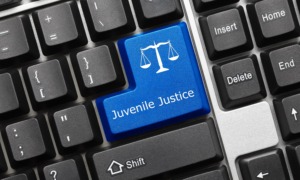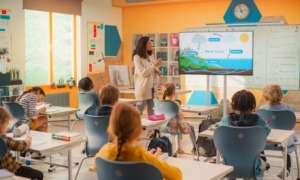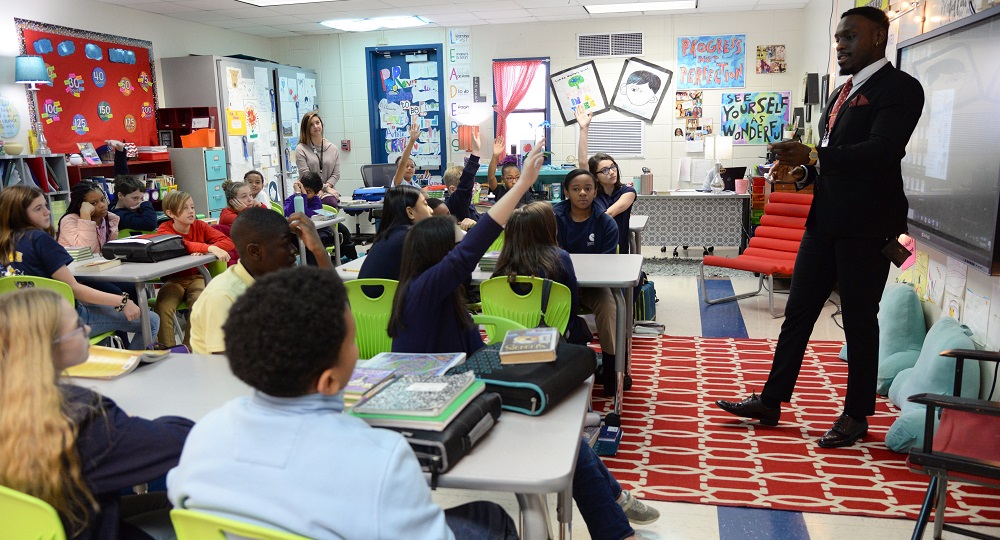
Jenna Eason/The Telegraph
Nnamdi Onyekwuluje, case manager for the school-justice partnership program in Macon-Bibb County, Georgia, talked to a fifth grade class at Springdale Elementary School last year.
MACON, Georgia — Bibb County District Attorney David Cooke first heard about school-justice partnerships five years ago on the other side of the country, at a juvenile justice conference in Phoenix. But the successful program that inspired him started only 70 miles away from Macon, in Clayton County.
Nearly two decades ago, the chief judge of Clayton County’s juvenile court pioneered an approach aimed at keeping children out of the criminal justice system and in school. His strategy was to address misconduct within the school system and replace exclusionary discipline — like expulsions and suspensions — with services children needed. The model he devised, called a school-justice partnership, recognized that underlying many school disciplinary problems are histories of trauma and unmet mental health needs — and that responding to children’s disciplinary problems by involving them with the juvenile justice system only increases their risk for further justice system involvement.
Under Cooke’s leadership, the Bibb County School District’s school-justice partnership had a successful start during the 2018-19 school year. But his plans for expanding it were snarled by the district’s pandemic-related school closures, and in the wake of his June defeat in his bid for re-election, the future of the school-justice partnership is now on very shaky ground.
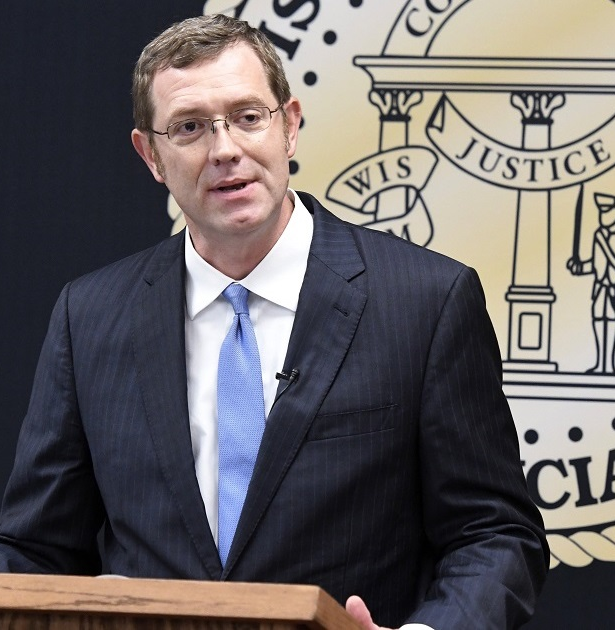
Jason Vorhees/The Telegraph
Macon (Georgia) Circuit District Attorney David Cooke speaks during a press conference last year.
Part of what attracted Cooke to school-justice partnerships up front was their potential to reduce some of the racial inequity in the criminal justice system, which he links to inequities in childhood trauma.
“The risk factors for being a victim and the risk factors for being a defendant are the same risk factors,” he said.
Black and Latino children are more likely than their white and Asian counterparts to experience childhood trauma, including poverty and parental separation or divorce. These children also disproportionately bear the effects of strict school disciplinary policies, which means they lose more instruction time than their white counterparts.
In intervening to address untreated childhood trauma, “you are going to necessarily address and reduce the inherent racial disparities that are in the system [behind] the ‘school to prison pipeline’ for minority youth,” Cooke said.
Resources extend to family members
Robert Simmons, an American University professor with decades of experience supporting Black youth who have experienced trauma as a result of systematic disenfranchisement, thinks “school-to-prison pipeline” is an oversimplification — but he agrees models like Cooke’s are important.
“Without a partnership between juvenile justice, family courts, schools, young people are going to stay in that cycle,” he said.
For school-justice partnerships to exist, authorities shift how they understand youth disciplinary issues: Within these models, trouble at school signals a need for help, not a need for punishment. For that reason, these partnerships generally place limits on the types of school offenses that can be processed through the juvenile court system. They refer students who commit minor offenses — including alcohol or marijuana possession, truancy, disruption and fighting — to any of a variety of youth services, including family counseling, mentoring, community service and mediation programs.
In the first year of Bibb County’s school-justice partnership, the program issued “notices of offense” to 207 students, some of them written warnings and some referrals for services. Only about 10% of students who were issued these notices had court involvement during the remainder of the school year, and more than half the students referred for services initiated or completed those services by the end of the school year. Between 85% and 93% of students involved in the partnership are Black, suggesting that the program shows promise in helping Black students in particular avoid contact with the criminal justice system.
The partnership’s benefits extend beyond the individual student: Siblings, parents and sometimes grandparents of students in the program are also offered counseling and services. “It’s multigenerational,” said Patty Gibbs, executive director of the Family Counseling Center of Central Georgia, whose counseling center has provided services to at least 14 of the partnership’s students and their families.
Jamie Cassady, the district’s assistant superintendent, said that when school is in session, the district’s school resource officers are at the heart of the partnership. These law enforcement officers who work in schools are trained to implement the school-justice partnership’s goals and are responsible for determining which offenses can be handled outside the juvenile justice system and which services a student might need.
Although the Bibb County Sheriff’s Office has implemented some policies intended to reduce unnecessary youth involvement with the juvenile justice system, Cooke said its officers’ approach is unlikely to be as holistic as the schools’.
“If we know what that child is dealing with at home, we will be more equipped to try to work with that student,” wrote Campus Police Sergeant Ulric Bellaire in an email. “A patrol officer might not.”
Special review panels stalled
Cooke was pleased with the impact of the partnership’s first year, and with what seemed to be an even greater impact in its second year: Before the district’s schools closed in March, 300 students had been referred to counseling through the program.
The next phase in the partnership would have aimed at keeping youth out of pretrial detention by implementing special multidisciplinary review panels aimed at allowing detained children to await the next steps in the juvenile justice process outside detention facilities. (Avoiding facility detention is a high priority, said Cooke, because detention itself is such a strong risk factor for future justice system entanglements.)
But the implementation of those panels — and an additional expansion of the program targeting youth convicted of more serious offenses, like armed robbery — was stalled when widespread shutdowns associated with the COVID-19 pandemic went into effect. And because Bibb County’s school year has been entirely virtual to date, Cooke suspects many students’ symptoms of trauma — which might otherwise be noticed by school resource officers interacting with them around disciplinary issues — are going unnoticed. Referrals to the program have decreased, he said; “the acting out is happening somewhere else.”
For children who have participated in the school-justice partnership, engagement in newly virtual counseling and group therapy sessions has been a challenge, said Tajalyn Woodruff, the partnership’s coordinator. Furthermore, due to the need for social distancing, the program’s staff cannot conduct home or school visits. Although staff made four times the number of efforts to contact families in June and July this year compared with the same period last year, far fewer were successful this year — only 33% of these efforts were successful, while 71% were successful last year.
Engaging families in virtual programming has also been a challenge, Woodruff said. “We’re trying to figure out new ways to promote those types of virtual events among the target population,” she said.
Will program continue?
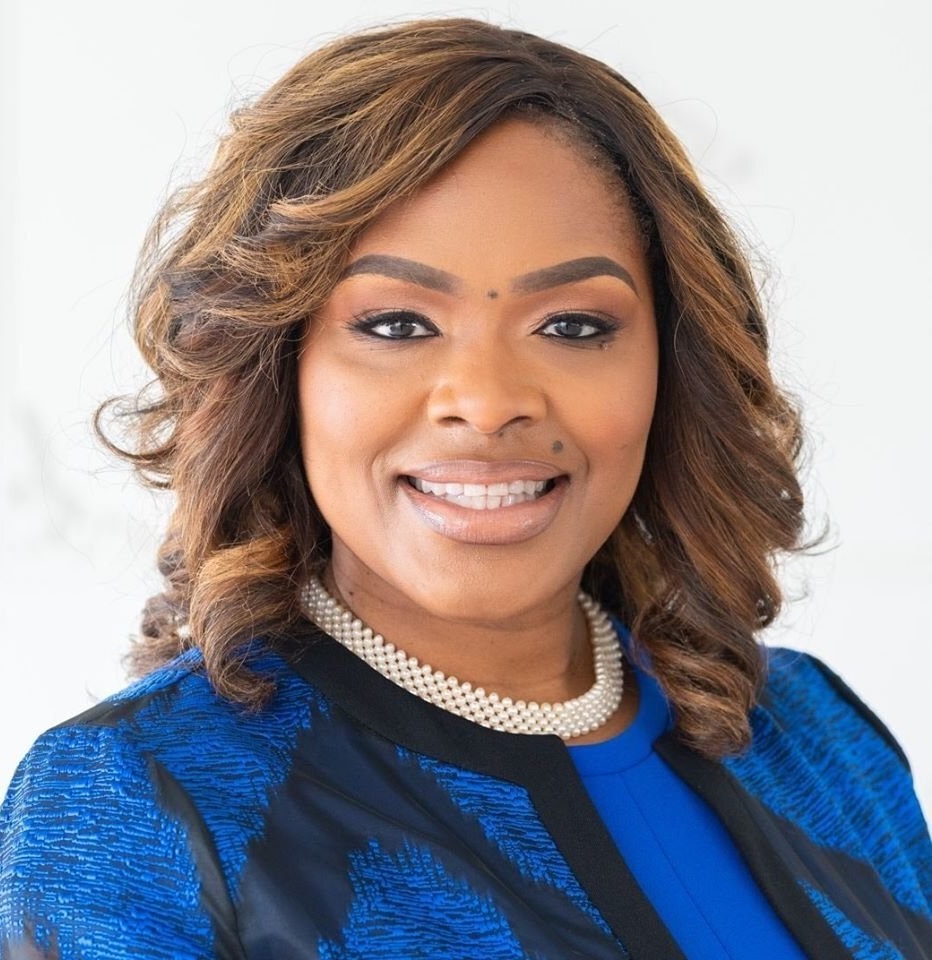
Contributed
Anita Howard will be sworn in as the Macon district attorney on Jan. 1.
In June, Cooke lost his re-election bid to Anita Reynolds Howard, who will be sworn in as Bibb County’s district attorney on Jan. 1. While Cooke said current written agreements related to the partnership ensure it will remain fully funded through the end of the current school year, it is not clear whether Howard intends to continue the program once she assumes office.
A Sept. 30 press release from Howard’s office called into question the future availability of funds from the program’s funding source — a “forfeiture fund” containing the seized profits of criminal activity. In a written reply to questions about her intentions for the program, Howard said her administration would work to ensure equity in programming and funding across all programs in the district attorney’s office, and would partner with schools to attain equity “under the current program or another.”
But funding for the program is not an issue, Cooke said in a written response. When Howard takes office, she will assume control of one of the largest forfeiture accounts in Georgia, which contains enough money to continue and expand the program for years to come, he wrote. “Whether or not Ms. Howard chooses to continue helping at-risk kids through this proven program will not be an issue of funding,” he wrote.
This is a collaboration between the Center for Sustainable Journalism, which publishes Youth Today and the Juvenile Justice Information Exchange, and the Macon Telegraph. It’s part of the Center’s national project on targeting gun violence. Support is provided by The Kendeda Fund. The Center is solely responsible for the content and maintains editorial independence.


